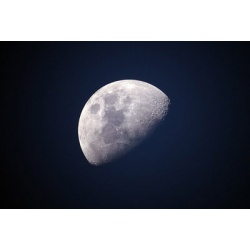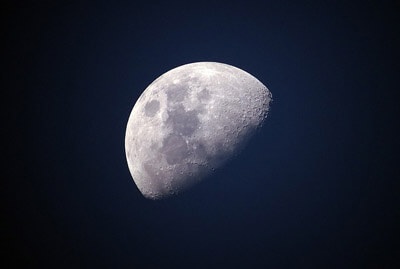
decorahnews.com's Ben Gardner comments on the 50th anniversary of the moon landing--Part 1
Posted: Wed, Jul 17, 2019 2:34 PM
(Saturday marks the 50-year anniversary of the Apollo 11 moon landing. The story of the Apollo 11 mission involved good luck and ingenuity, tragedy and redemption, national joy and myth-making. The story also involved three young men crammed into a 6.5-ton capsule resembling a bullet and shooting off into unexplored lands—with the expectation they'd make it back. The following is part one in a three-part series dedicated to the 50th anniversary of the moon landing, written by decorahnews.com's Ben Gardner):
On July 16th, 1969, millions of Americas huddled around TVs and watched as Neil Armstrong, Buzz Aldrin, and Michael Collins launched off from Kennedy Space Center, aboard the Command Module Columbia. They hurtled overhead into space, traveling nearly 250,000 miles in three days.
On July 19th, Apollo 11 entered the moon's orbit and Armstrong and Aldrin entered the lunar module Eagle and separated from the command module, leaving Michael Collins to operate the command module and miss a lot of the fun.
Armstrong stepped off onto the moon's surface at 10:56 p.m. and declared his now-famous proclamation. Aldrin followed 19 minutes later, and they spent the next two hours collecting data, photographing geography, and planting the U.S. flag. They reentered the lunar module and slept that night on the moon's surface in a very cramped capsule.
The following day, Apollo 11 began its journey home, which meant three astronauts spent the next three days careening through space until they plopped into the Pacific Ocean on July 24th.
The three men made it back, and an estimated 600 million people around the world tuned in and watched as Armstrong and Aldrin stepped down onto the moon's powdery surface. It's rare for a world-historical event to be witnessed simultaneously by so many.
The story most of us don't know, however, is why we went to the moon in the first place. Why did the U.S. spend an estimated $100 billion and employ nearly 400,000 scientists and engineers during the space race? Why did President Kennedy consider it so important to land on the moon by the end of the 1960s? Find out tomorrow in part two of our three-part series dedicated the Apollo 11 program's 50th anniversary. And visit Saturday for part three where we'll publish personal remembrances of the moon landing from local residents.
Copyright © - decorahnewsarchive.com. All rights reserved.| Terms Of Use Statement.

Site designed and maintained by Iroc Web Design Services©.
Your Small Business Web Design Solutions.™
Site designed and maintained by Iroc Web Design Services©.
Your Small Business Web Design Solutions.™


